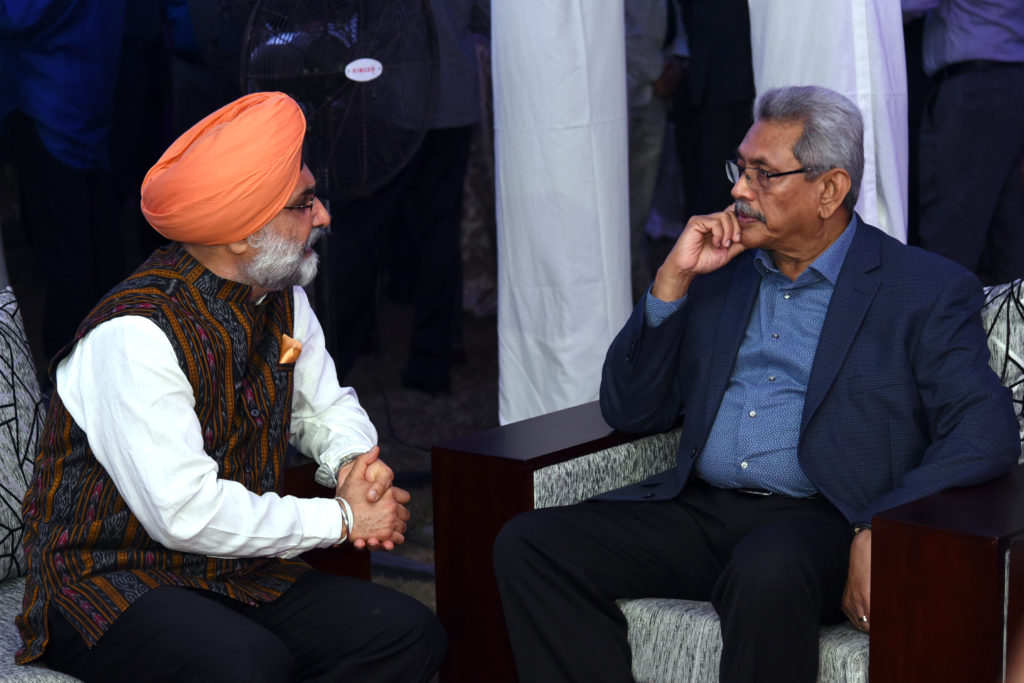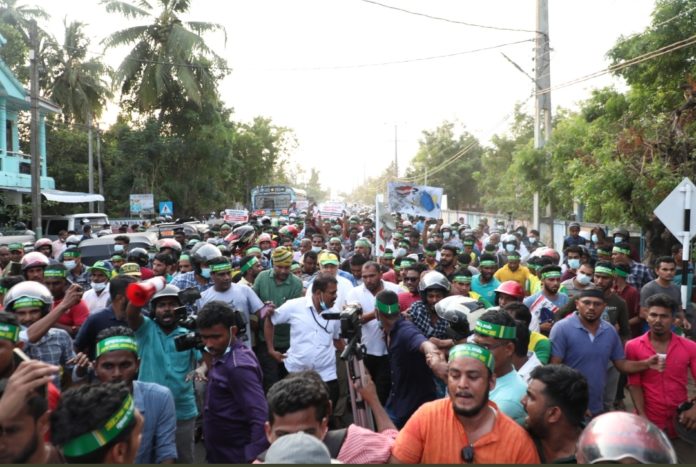Sri Lankan Muslim Mohamed Nafas says that Muslims are at the forefront of unprecedented public protests against the Rajapaksa government and are rebuilding their strained relationship with the majority Sinhalese community in the process.
Sri Lankans – regardless of race, religion, ethnicity and political affiliation – have taken to the streets demanding the immediate resignation of President Gotabaya Rajapaksa.
Public protests have taken place across the country with the slogan “GO home Gota”. The most notable protest is underway in Galle Face, Colombo, for the 10th consecutive day with thousands in attendance.
The island nation is grappling with its worst economic crisis since independence from Britain in 1948.
It is caused in part by a lack of foreign currency, which has meant that Sri Lanka cannot afford to pay for imports of staple foods and fuel, leading to acute shortages and very high prices.

With power cuts lasting half a day or more, and shortages of food, medicines and fuel, public anger has soared.
Critics say rank corruption and nepotism – Rajapaksa’s brothers and nephews occupied several key ministerial portfolios – are the main reasons for the situation the country has found itself in.
Subscribe to our newsletter and stay updated on the latest news and updates from around the Muslim world!
Highly educated Buddhist Sinhala youths along with Tamils and Muslims are in the forefront leading the protests. Sri Lankans from various parts of the country are joining hands with the protesters passionately.
Despite the Rajapaksa government’s severe attempts to disperse the protesters, this has been defeated by the unity of the people and the prompt legal aid of prominent lawyers in the country.
The government that came to power using racism and Islamophobia as a tool is now exposed and the majority of the Sinhalese have now understood the conspiracies of the government to keep the nation divided for political gains of the ruling elites.
Today, the government is at odds with the interests of people and has earned their collective distrust and anger. The will power, determination, clarity and the uncompromising demands of the people staging massive protests have weakened the state’s tools that have long been used for manipulating the general public.
It has taken a serious economic crisis and the resulting power cuts, price hikes, and fuel shortages for Sri Lankans to come together and stand united. It is overwhelming to see Muslims being aided by Sinhalese to do their iftars at the protest sites.
The Sinhala-Muslim relationship, that has been in tatters because of the anti-Muslim hate speeches and unsavoury media campaign carried out by the racist hardliners, has now been built again.






















